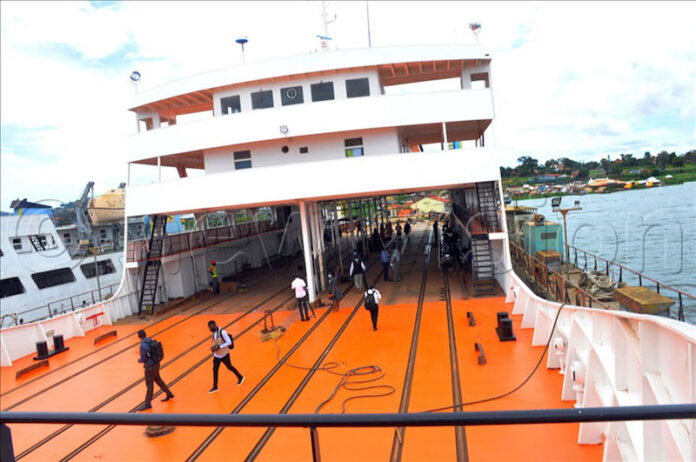Boat Operators on the Nakiwogo-Buwaya route of Lake Victoria have voiced their concerns following the introduction of the government’s newly rehabilitated ferry, the MV Nakiwogo II. While this new ferry promises efficiency and increased capacity for the growing transportation needs in the region, many local boat operators feel the brunt of its arrival.
The MV Nakiwogo II was rehabilitated by the government at a cost of Shs5.8 billion. Boasting a capacity to ferry 300 passengers and between 10 to 12 vehicles, it dwarfs its predecessor—the old Nakiwogo ferry, which could only accommodate 80 passengers and 8 cars. This new vessel recently began its normal operations, after being transferred from its previous route of Kiyindi-Buvuma, under the management of the Uganda National Roads Authority (Unra).
For the boat operators, the arrival of MV Nakiwogo II spells dwindling incomes and uncertainty. Mr. Paul Sserunjogi, a boat operator at the Nakiwogo landing site, expressed his frustrations, stating, “This new ferry is bigger and doesn’t leave any passengers behind. We now sometimes go home empty-handed.”
Mr. Paddy Ssembatya, sharing this sentiment, highlights the financial challenges these operators are facing. With the fee per passenger set at Shs 3,000, they often find that only two can afford the fare out of every five passengers. “After covering fuel costs and boat rental fees, we sometimes earn nothing,” lamented Ssembatya. He further questioned how they would manage to afford the Shs 200,000 annual boat license imposed by the government, especially now with their reduced earnings.
Addressing these concerns, Mr. Allan Ssempebwa, the spokesperson for Unra, emphasized that the MV Nakiwogo II was introduced to cater to the increasing traffic on the route and not to sideline private boat operators. “This vessel addresses the transportation needs of communities in Wakiso and Mpigi. We believe private boats will continue operating alongside the ferry as they did before,” said Mr. Ssempebwa. He also added that the fate of the old Nakiwogo ferry is yet to be decided, with engineering inspections pending to determine its future.
As the region grapples with this change, it’s evident that while the MV Nakiwogo II is a significant leap towards better transport infrastructure for the larger community, it also poses a threat to the livelihoods of local boat operators. Balancing these operators’ development and well-being remains a challenge for policymakers and stakeholders in the region.

